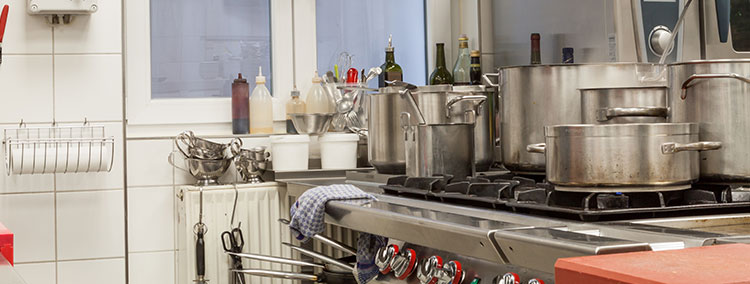Are you wondering how long do dishwashers last? According to appliance repair professionals, they last an average of 9.5 years.
The appliance’s lifespan is hugely dependent on how frequently you use the unit.
An average household runs its dishwasher five times a week. This means that if you run yours more than this, it’s bound to have a much shorter lifespan and vice versa.
For example, if you run your unit more than five cycles a week, it will last for seven years, and if you run it fewer than five cycles a week, it will last for even 15 years.
How do you extend the life of your dishwasher?
Would you love your dishwasher to last for as long as possible? There are several things you can do. These things include:
Always load your dishwasher correctly
How you load your unit goes a long way towards determining how long it lasts. As a rule of thumb, you should never overload the unit, as you will inhibit its ability to clean the dishes properly. Overloading the dishwasher also creates unnecessary strain, which prevents the dishes from cleaning properly and makes the dishwasher overwork, which drives it to an early grave.
To be safe, learn how to load the dishwasher properly. This calls for you to place the different items in the right places.
Throw away the bones and food scraps before loading the dishwasher
While some powerful modern dishwashers in the market can handle food scraps, it’s still not safe to throw filthy food scraps and bones in the dishwasher as they prevent the dishes from cleaning as well as they should, so you should always remove dirty dishes.
There is also the risk of food getting stuck in the filters and causing significant damage over time.
Clean dishwasher safe items
Dishwasher companies will advertise that you can clean anything on the dishwasher, but this isn’t the case. There are some items that are hand wash only, and it’s for a good reason. This is because some of these items can damage your dishwasher.
To protect your unit from damage, take your time to analyze anything you put in the dishwasher. As a rule of thumb, don’t put anything there that doesn’t belong.
Keep the dishwasher clean.
The dishwasher is always clean as there is water flowing through it, right? Wrong. Like the other units in your home, you need to clean the dishwasher.
One of the parts you should ensure that is clean is the food trap. All dishwashers have a rubber trap at the bottom of the drain that prevents the drain from clogging. Every few months, remove the trap and clean it to keep it in top working condition.
You also should clean the dishwasher filters and door seals.
When doing the cleaning, always use vinegar as it not only removes the built-up gunk, but also gets rid of awful odors. To clean using vinegar, pour a cup of white distilled vinegar in the bottom of the dishwasher, then run an empty cycle. The vinegar will clean out any debris stuck in the crevices and throughout the machine’s interior.
Wash the dishes with hot water
When it comes to the water you use when washing the dishes, always use hot water. Hot water cleans the dishes and kills bacteria, so you have clean and safe-to-eat dishes. Hot water also prevents debris and residues from building up in the dishwasher, so you have an easy time cleaning it.
Use the right detergents.
Besides using hot water, you also should use the right dishwashing detergent. Dishwasher repair Alexandria professionals recommend you only use detergent meant for the dishwasher. And when using the detergent, don’t use a detergent that is more than the manufacturer recommended amount.
As much as a detergent might appear harmless, note that using the wrong one can lead to pipe, filter, and even drainage damage.
If you aren’t sure about the right detergent to use, get the input of a professional.


